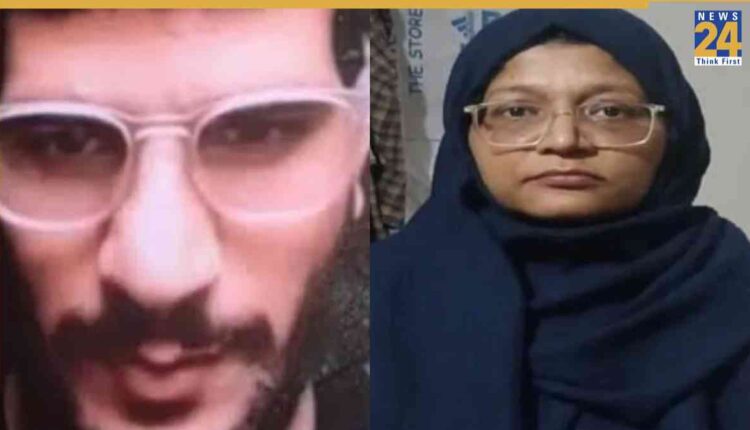When we think of terrorists, we usually imagine people hiding in caves or coming from poor villages. But what if I told you that the person planning the next attack could be your family doctor, your college professor, or the software engineer sitting next to you in a café? This is exactly what happened in the recent Delhi car blast that shook our capital. The investigation revealed something truly frightening—some of the main suspects were doctors. Yes, educated medical professionals working in hospitals, trusted by patients, but secretly working for Pakistan-based terror groups like Jaish-e-Mohammed and Ansar Ghazwat-ul-Hind.
This is what security experts are now calling “white-collar terrorism,” and it is perhaps the most dangerous threat India faces today. Unlike traditional terrorists, these are people with degrees, good jobs, and respected positions in society. They don’t look suspicious. They blend perfectly into our world. A doctor can easily store chemicals without raising questions. An engineer knows how to build sophisticated bombs. An IT professional can handle encrypted communications that even police struggle to track. They use their education not to serve humanity but to destroy it.
So why would an educated person with a stable job and comfortable life choose terrorism? The answer lies in the dark corners of the internet. Today’s radicalisation doesn’t happen in secret training camps—it happens on your phone screen. Social media platforms, encrypted messaging apps like Telegram, propaganda videos, and hate-filled online groups are turning ordinary professionals into extremists. These people get mentally influenced through constant exposure to radical beliefs until they stop thinking independently and start following dangerous ideologies blindly. They genuinely believe they are fighting for some great cause, even though they are actually planning to kill innocent people.
What makes this terrifying is that terrorist organizations specifically hunt for educated recruits. They need doctors to provide medical cover for their operations. They need engineers for technical expertise in making explosives. They need professionals who can rent houses, purchase materials, and move around cities without anyone suspecting them. In the Delhi case, investigations found that some doctors were radicalized through their professional circles and foreign connections. Some were even linked to institutions like Al Falah University in Faridabad, raising serious questions about how extremist ideas are spreading even in educational campuses.
This is why white-collar terrorism is far more dangerous than regular terrorism. An ordinary terrorist might behave suspiciously, but a doctor or professor with a clean background can operate for years without detection. They leave fewer clues. They plan quietly. They execute attacks with frightening precision. By the time agencies discover them, the damage is often already done. Recent investigations have recovered huge quantities of explosives from such sleeper cells, showing how deeply they had infiltrated without anyone noticing.
And it’s not just men anymore. Women are increasingly being recruited into extremist networks, both by Maoist groups and Islamist organizations. Some join due to ideology, others due to personal anger or frustration. This creates new social problems—families break apart, children grow up without mothers, and communities face shame. Inside these groups, women often face abuse despite being promised equality. Worse, security agencies find them harder to suspect, making detection even more difficult.
India has made progress in fighting this threat. The NIA and police forces have busted several terrorist cells and seized explosives. But the rise of educated terrorists shows we need much stronger action—better online surveillance, stricter monitoring of professional networks, and greater intelligence sharing between agencies. After the Delhi blast, major cities are already on high alert. Security has increased at airports, metro stations, and monuments. If links to Pakistan-based groups are confirmed, tensions will definitely rise.
The truth we must accept is simple but scary: terrorism today doesn’t wear a beard and carry a gun. It wears a suit, carries a briefcase, and sits in an air-conditioned office. The enemy is no longer outside—it’s already inside, hiding behind education and respectability. As students and young citizens, we must stay alert, question radical content online, and report suspicious behavior. Because in this new war, anyone could be a target, and anyone could be a terrorist.
ALSO READ: Who is Umar Nabi Bhat? The Doctor-Turned-Suspect in Delhi Blast as DNA Confirms His Presence in the exploded Car and Links to Turkey’s Ankara

